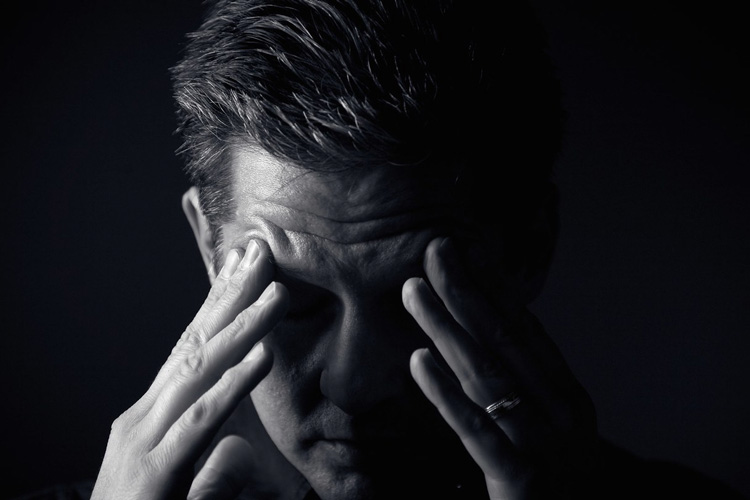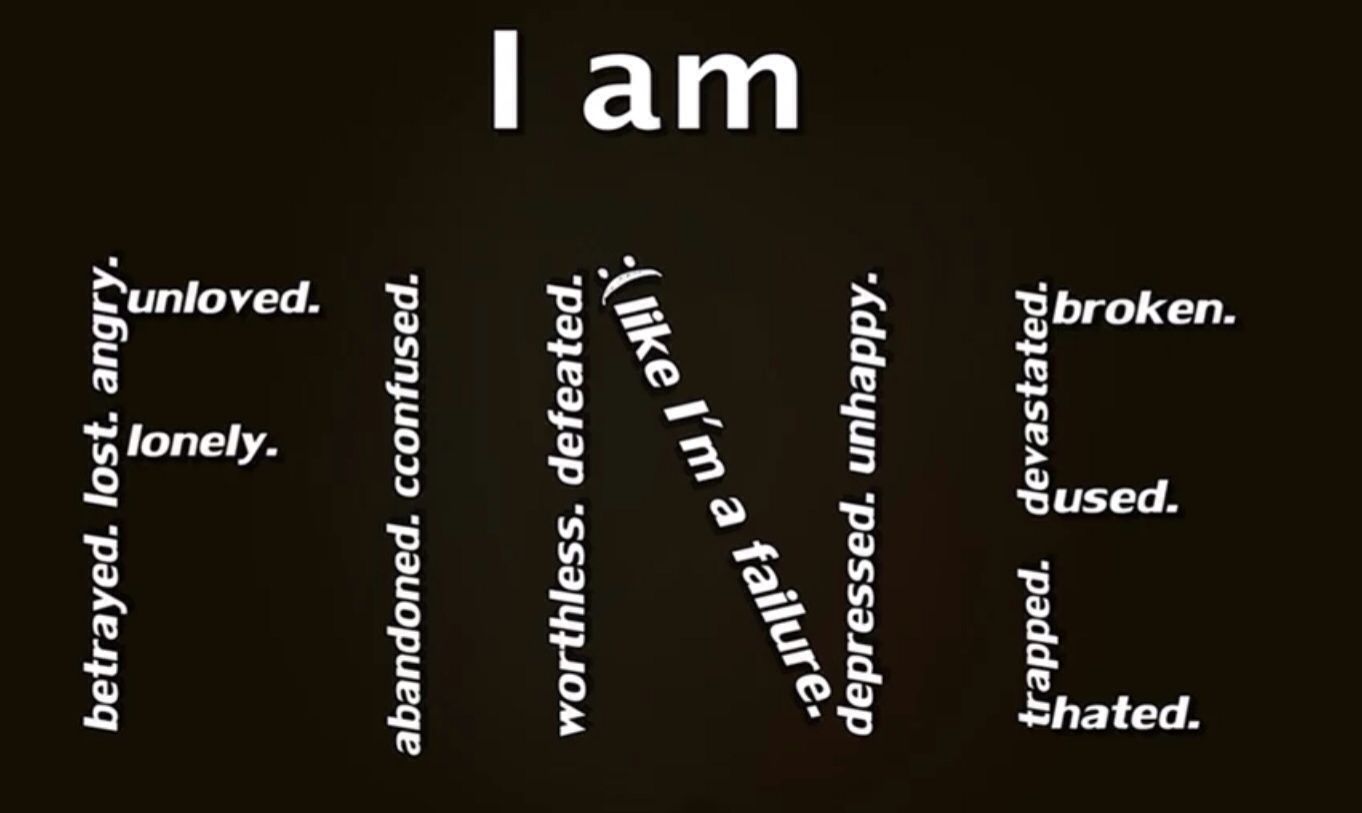Depression, also called unipolar depression, clinical depression, unipolar disorder, major depressive disorder, is a pathological condition characterized by a sad and sorrowful mood associated with a reduction of psychological and physical activities. Depressed individuals feel helpless and become distant. They lose interest in usual activities such as laughing, eating habits, and going out with friends. Depression is the disease of our generation. According to the WHO, it is one of the top mental disorders troubling the quality of life of humankind in the world. It is estimated that in Western countries like USA, 6% (about 17 million people) of the population are depressed.
We all are unhappy or feel down when things do not go as planned. Failure can cause feelings of worthlessness and self-reproach in everyone. Personal losses provoke feelings of sadness, disappointment and emptiness; it is in our nature. However, those feeling are temporary, and do not represent any risk of depression. You become clinically depressed when you cannot control or get over those feelings. Clinical depression can cause a variety ofphysical and mental problems. It can affect your work, school and family relationship and your general health.
Causes and Risk Factors
 There is no unique cause of depression; in fact, the causes of the disorder are still not well known. The factors leading to major depressive disorder can be genetic, biochemical, environmental or psychological. In fact, what develops clinical depression in one person may be an insufficient thing for someone else. There are some factors, however, that are suspected in making people more likely to become depressed:
There is no unique cause of depression; in fact, the causes of the disorder are still not well known. The factors leading to major depressive disorder can be genetic, biochemical, environmental or psychological. In fact, what develops clinical depression in one person may be an insufficient thing for someone else. There are some factors, however, that are suspected in making people more likely to become depressed:
- Age – the onset of depression tends to be between the ages of 30 and 40
- Sex – depression is more common in women than in men
- Genetic – Some types of depression tend to run in families researches show
- Painful events of life – loss of a loved one, diagnosed With an incurable disease
- Difficulty in relationship – divorce, infidelity in a relationship
- Hormonal disorder – hypothyroidism increases the risk of depression in some people, mostly women
Biochemical imbalance in the brain – scientists have discovered, from high-tech imaging studies, physical difference in the brain of people who are depressed from those who are not.
Depression Symptoms
Symptoms of depression vary from mild to severe and can last for several weeks, even months. When the depression is minor, it is likely to cause a feeling of emptiness, which makes you unable or unwilling to enjoy activities you used to. However, symptoms of severe depression are serious and can impair your work and entire social life. This apathetic condition can change your thoughts and behavior. In your mind, it is like “The World Turned Upside Down“; your behavior expresses unhappiness and despair.
The most commons symptoms of depression include:
- Loss of interest or pleasure in doing things you used to enjoy
- Feeling of sadness or emptiness
- Frequent crying spells without apparent reason
- Agitation and difficulty to stay quiet
- Feelings of worthlessness or guilt
- Changes in appetite leading to loss or gain weight
- Thoughts about death or suicide
- Difficulty to reflect, remember things or concentrate
- Difficulty in making simple daily life decisions
- Sleep disorders, especially early in the morning
- Feeling of continuous fatigue
- Lack of emotional response even to the point of not being able to cry
- Excessive daytime sleepiness (hypersomnia)
Complications and Diagnosis
It is vital to treat any major depressive disorder as soon as possible. Left untreated, depression can lead to heart disease, chronic headache, difficulties in sexual activities. Complications of depression may also lead to suicide.
 Depression is often under-diagnosed; most people ignore the symptoms of depression, which prevents them from taking those symptoms for what they really are, and see medical help. Depression is not an insignificant matter; if it is not diagnosed and treated it can lead to death. Hundreds and even thousands of depression-related suicides could be prevented by early diagnosis and appropriate treatment.
Depression is often under-diagnosed; most people ignore the symptoms of depression, which prevents them from taking those symptoms for what they really are, and see medical help. Depression is not an insignificant matter; if it is not diagnosed and treated it can lead to death. Hundreds and even thousands of depression-related suicides could be prevented by early diagnosis and appropriate treatment.
Depression diagnosis is not a simple procedure; there is not a precise and definitive method. In fact, there are many types of depression, each type may produce different symptoms and require different therapy. Therefore, to diagnose your depression, your doctor may perform psychological tests to determine the onset, severity, duration, and progression of your depressive symptoms. Your doctor may also recommend a toxicology screening to determine if you have drug-induced depression.
Interview with Your Doctor
The dialogue with your doctor is most often an ambulatory procedure. In general, the specialist will seek to discover the evolutionary stage of the depression, and also consider your age and psychiatric influences: being a child, youth or elderly; conduct additive to drug or alcohol, and other factors that may lead to development of depressive symptoms. During the interview, your doctor will try to discover what type of depression you have, and if it is serious or not. After an evaluation of the symptoms, he will help you understand not only the disorder but also help you to face it in order to overcome it.
You cannot rely on vague symptoms to confirm that you have depression; symptoms must not only exist but also affect your daily life or social functioning. In addition, the symptoms must not be the result of a recent event, loss of a loved one for instance. According to the Diagnostic and Statistical Manual of Mental Disorders (DSM), there are at least nine types of depression symptoms. Among these nine, at least 5 must be being experienced for at least two weeks, and one of the first two must be present during the diagnosis:
- continuous depressed mood
- absence or lack of interest or pleasure in any activity
- reduction or increase of appetite which can be associated with weight problem
- sleep disorder: insomnia or hypersomnia
- unreasonable fatigue
- unreasonable and excessive feeling of guilt
- concentration problems
- tendency to suicide
- Agitation or psychomotor retardation (slowing down of thought and a reduction of physical movements).
Depression Treatment
Now days, numerous treatments are available for depression attacks. To treat your depressive condition, your doctor may prescribe antidepressant medications, psychotherapy, or electroconvulsive therapy (ECT):
Medications – antidepressants drugs are used to correct the imbalance of neurotransmitters, chemicals in the brain that regulate the transmission of signals from one neuron to the next across synapses. In general, those medications affect the neurotransmitters after the first dose, but the complete therapeutic effects occur after several weeks of regular use. The most common used are Selective serotonin reuptake inhibitors (SSRIs). Some drugs of the Selective serotonin reuptake inhibitors (SSRIs) family include escitalopram (Lexapro, Esipram), fluoxetine (Prozac), paroxetine (Paxil, Seroxat), citalopram (Celexa) and sertraline (Zoloft).
Nausea
Fatigue
Tremors
Diarrhea
Headaches
Anxiety
Insomnia
Dizziness
Restlessness
liver failure
Decreased sex drive
Weight gain or loss
Sweating
Sleepiness
Dry mouth (xerostomia)
Constipation
Psychotherapy – these are techniques used to restore metal health in individual suffering from various psychological conditions, especially depression. It is one of the most effective ways to treat depression without side effects. Psychotherapy addresses some specific issues, which may be the root of the disorder: family conflicts, relationship issues, work related problems, individual or personal matters, etc. The approach and methods used depend on the factors causing the depression. The therapy can last three to six months. Psychotherapy can be used alone or combined with antidepressant drugs.
There many forms of psychotherapy:
- Cognitive-behavioral therapy it is by far the most common used of psychotherapies against depression. This method helps you to recognize your own patterns of thinking and negative behaviors and replace them with positive patterns; it opens up prospects for your future. This therapeutic method work quickly and meaningfully for most depressed individuals.
- Interpersonal therapy (IPT) is a short-term psychotherapy process focusing on the treatment of social and personal relationships that have disrupted, and may contribute to the onset of the depression. In this form of therapy, the Psychotherapist helps you to actually enter into relationship with others, and obtain supports of your family and friends.
- Psychodynamic therapy, also known as insight-oriented therapy, is focusing in helping depressed people to discover , understand and face the emotional conflicts from childhood that may have contributed to depression.
Electroconvulsive therapy (ECT) – The treatment consists of transcranial administration (through the brain) of electrical currents to trigger seizure. The procedure can be repeated several times. Electroconvulsive therapy can be considered when the health of the patient is incompatible with other dugs treatment or in people with high risk of suicide. ECT can be also used at the request of the patient. Common side effects include confusion (usually last 4 hours or less) and partial memory loss, which often returns to normal.
Depression Prevention
To reduce your risk of being depressed, you need to:
- Exercise regularly
- Every day, laugh as many times you can; that also prevent premature aging
- Be realistic; do not try to get blood from stone;
- Do not believe your negative thoughts if apparently you fail in something;
- Do not blame yourself when you fail; failure is not the end your goal
- Set realistic goals before you; do not dream to fly if you are an elephant
- Whenever it is possible, get involved in activities that give you a sense of accomplishing something
- Avoid people who put you down, or make you feel worthless; you are worth more than you make realize
- Avoid negative people; no matter how well you do, they will always have negative things to say about you
- When you feel down, get social supports from family, friends and groups such as church
- Temporary, put aside tasks that seem too difficult to be accomplished
- If you feel depressed, avoid taking major decisions that can complicate your problems
- Look for company of those who love you when you feel down; If you have no one to get comfort from, sing and pray God (you need to believe)
- If you have depression, do not take drugs or drink alcohol; alcohol and drugs will worsen you situation and may you become a drug addict.
- If you get a bad report from your doctor, do not depressed yourself; your destiny does not depends on a medical report. Pray your maker your life will shine through (personal experience)



